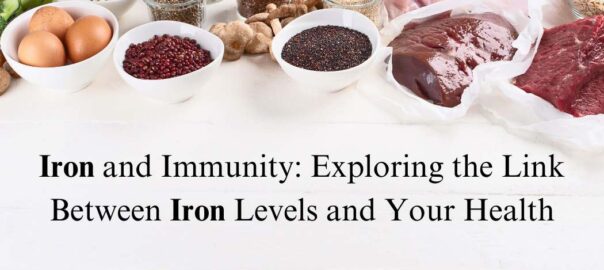
In the quest for optimal health, omega-3 fatty acids have emerged as a cornerstone nutrient. These essential fatty acids play a crucial role in various bodily functions, offering a myriad of health benefits. From cardiovascular well-being to cognitive function, the impact of omega-3s is profound. Let’s delve into the depths of these remarkable nutrients to understand their health benefits, sources, and types.
Understanding Omega-3 Fatty Acids
Before we explore their benefits, let’s grasp the essence of omega-3 fatty acids. Omega-3s are polyunsaturated fats that the body cannot produce on its own, hence the term “essential.” The primary types of omega-3s include Eicosapentaenoic Acid (EPA), Docosahexaenoic Acid (DHA), and Alpha-Linolenic Acid (ALA).
Health Benefits of Omega-3 Supplements
Incorporating omega-3 supplements into your daily regimen can yield a multitude of health advantages:
Heart Health
Omega-3s are renowned for their ability to promote cardiovascular health. They help lower triglyceride levels, reduce blood pressure, and prevent plaque buildup in arteries, thereby lowering the risk of heart disease.
Brain Function
DHA, a type of omega-3, is a key structural component of the brain. Regular consumption of DHA-rich supplements can enhance cognitive function, improve memory, and reduce the risk of age-related cognitive decline.
Joint Health
Omega-3 fatty acids possess anti-inflammatory properties, making them beneficial for individuals suffering from joint pain or arthritis. They help alleviate inflammation and stiffness, thereby promoting joint flexibility and mobility.
Eye Health
DHA is also abundant in the retina of the eye, making omega-3s essential for maintaining optimal vision health. Consuming omega-3 supplements can reduce the risk of age-related macular degeneration and dry eye syndrome.
Mood Regulation
Studies have shown that omega-3s play a role in regulating mood and combating depression and anxiety. Incorporating these supplements into your diet can uplift mood, enhance emotional well-being, and reduce the symptoms of mood disorders.
Sources of Omega-3 Fatty Acids
While supplements offer a convenient way to boost omega-3 intake, it’s also crucial to obtain these essential fatty acids from dietary sources:
Fatty Fish
Fatty fish such as salmon, mackerel, sardines, and trout are rich sources of EPA and DHA. Aim to include these fish in your diet at least twice a week to meet your omega-3 needs.
Flax seeds and Chia Seeds
For vegetarians and vegans, flax seeds and chia seeds are excellent sources of ALA, a plant-based omega-3 fatty acid. Incorporate these seeds into smoothies, oatmeal, or salads for a nutritional boost.
Walnuts
Walnuts are unique among nuts because they contain a significant amount of ALA. Snack on a handful of walnuts daily to increase your omega-3 intake.
Fortified Foods
Some foods, such as certain brands of eggs, yogurt, and milk, are fortified with omega-3s. Check product labels to identify fortified options and incorporate them into your diet as needed.
Types of Omega-3 Supplements
Omega-3 supplements come in various forms, each offering distinct benefits:
Fish Oil
Fish oil supplements are the most common form of omega-3 supplementation. They typically contain a combination of EPA and DHA and are available in liquid or capsule form.
Krill Oil
Krill oil is derived from tiny crustaceans called krill. It contains EPA and DHA in a unique phospholipid form, which some believe enhances absorption compared to fish oil.
Algal Oil
Algal oil is a vegetarian source of DHA derived from algae. It’s an excellent option for individuals who prefer plant-based supplements or have dietary restrictions.
Conclusion
In conclusion, omega-3 essential fatty acid supplements are a cornerstone of optimal health. From supporting heart and brain function to promoting joint and eye health, the benefits of omega-3s are undeniable. By incorporating omega-3-rich foods and supplements into your diet, you can enhance your overall well-being and embark on a journey towards a healthier, happier life.
FAQ’s
Omega-3 fatty acids are essential fats that our bodies cannot produce on their own, so we must obtain them through our diet. They play a vital role in various bodily functions, including heart health, brain function, joint health, eye health, and mood regulation.
Omega-3 supplements, particularly those rich in EPA and DHA, help lower triglyceride levels, reduce blood pressure, and prevent the buildup of plaque in arteries. These actions collectively reduce the risk of heart disease and promote overall cardiovascular well-being.
Yes, omega-3 supplements, especially those containing DHA, are crucial for brain health. DHA is a structural component of the brain, and regular consumption of DHA-rich supplements can enhance cognitive function, improve memory, and lower the risk of age-related cognitive decline.
Absolutely. Omega-3 fatty acids possess anti-inflammatory properties, which can help alleviate joint pain and stiffness associated with conditions like arthritis. By reducing inflammation, omega-3s promote joint flexibility and mobility, thus supporting overall joint health.
Yes, there are several plant-based sources of omega-3 fatty acids suitable for vegetarians and vegans. Flaxseeds, chia seeds, hemp seeds, walnuts, and algae-derived supplements are all excellent options for obtaining omega-3s without consuming fish or fish oil.






